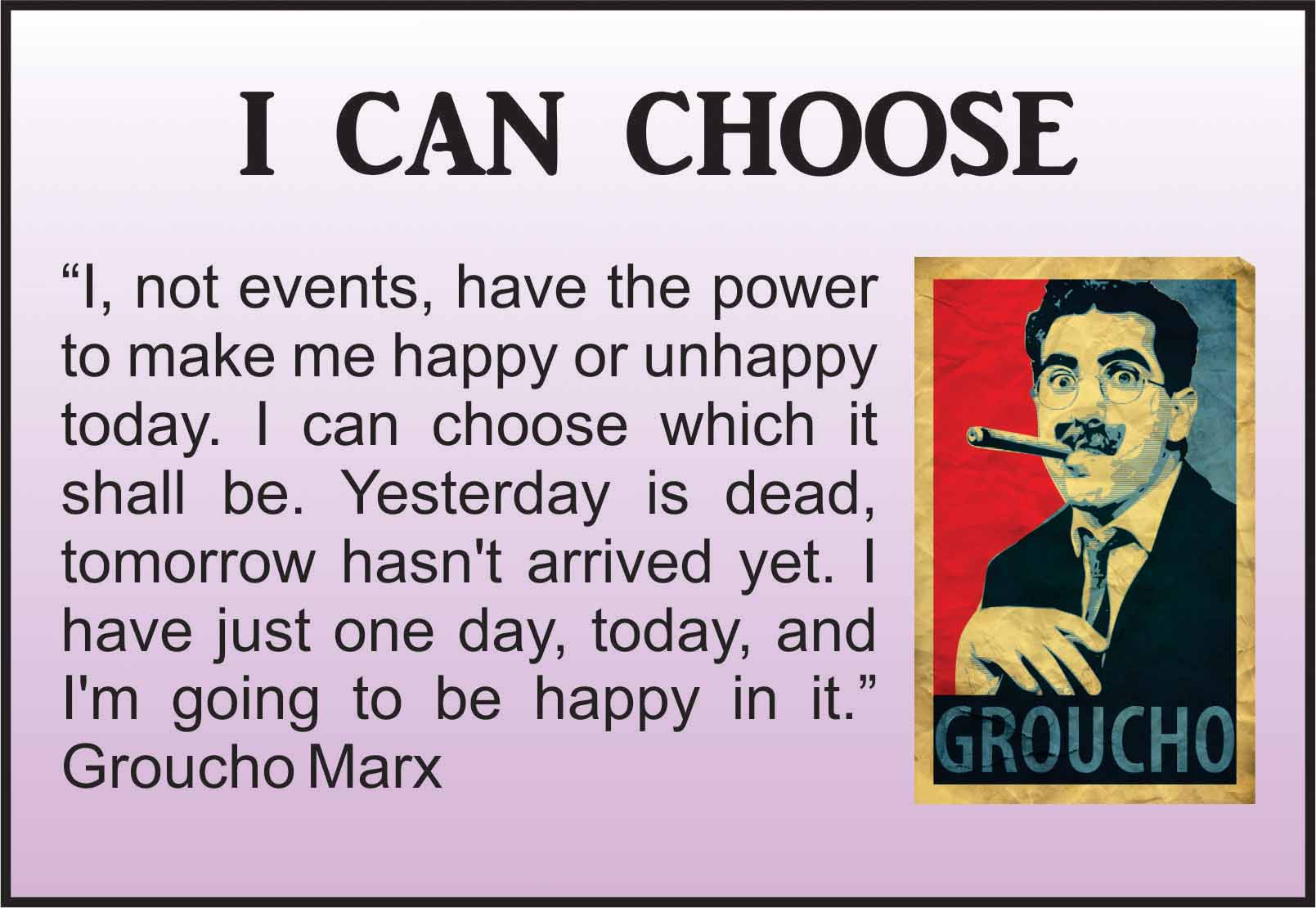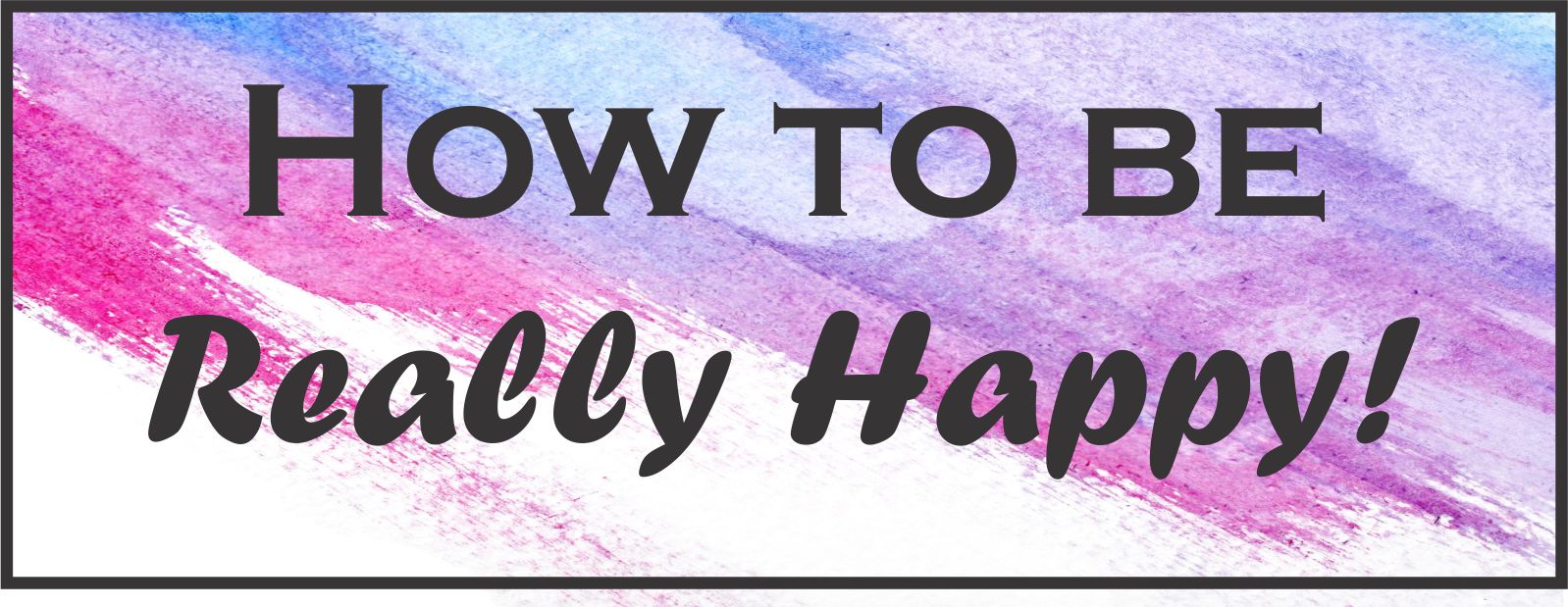Being Happy is a Choice We Make
“Most people are about as happy as they make up their minds to be.” Abraham Lincoln
The art and science of being happy begins with choosing to be happy. If we don’t flap our wings we won’t fly and the gravity of our erroneous, self-serving convictions will drag us down into the darkness of despair and depravity. Not only do we make this choice once, but we make it thousands of times as we walk through our lives. It requires a firm will and a resolute conviction and determined attitude that no matter what, we are going to be happy. If we are beset with unhappiness, (and we will be) we look at our mind and ask why we are unhappy.
The constant examination of our mind will take us into deep places and it will require courage to do so. 
It is a fact that most people would rather remain in their realms of self-imposed suffering and pain than make any effort to get out of it. This is because of attachment to the identities that have found a home in our ego. In order to be happy, we will have to change our concepts of who and what we are. For example, we might have an identity of being a victim at least in some circumstances or perhaps in a past event. We harbor ill feelings about the persons who abused us and we see ourselves as the victim. Forgiving these people is part of the story.
The other aspect is that we are uncomfortable with giving up our identity as a victim. Who will we be then? Part of our ego will die if we do that and we would rather endure the pain than reconcile with our abusers thus giving up part of our identity.
At the very core of the problem is the fact that we feel that we are separate from other persons and life in general. Ultimately this feeling of separation, which is embodied in the concepts of “I” and “mine,” must go. This is the core of the ego.
Knowing this, we are forewarned and forearmed and we understand the resolve we must have to say, “no” to unhappy thoughts.
The ability to resist negativity is something like athletics. In the beginning, it is difficult to manage even small events like someone cutting us off in traffic. However, with practice we are able to gain strength. If we were just starting to enjoy jogging, we would not be able to run very far in the beginning. With perseverance and practice our range begins to expand. It would also be true with lifting weights. Small weights at first but later we will be lifting heavier loads.
Like athletics, we must condition ourselves to persist and on a daily basis. This is somewhat more difficult than lifting weights because the weights are tangible. They call to us from the garage. The negativity in our minds has become habitual and so we don’t notice it. It helps to pick out a few negativities at first and concentrate on them. For example, if we are annoyed by traffic incidents (e.g. the traffic is moving too slowly, someone cuts us off) we can begin with this. If we are annoyed by a particular habit of our spouse, try to overcome the annoyance by asking why we are annoyed. Drill down into the psyche and find the cause of it.

